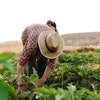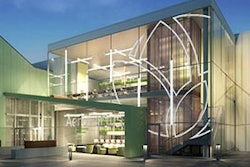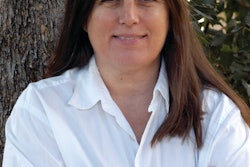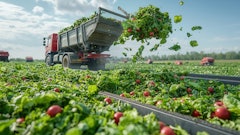The planned Berea Urban Farm will share a $250,000 Livable Communities Partnership with eight other recipients.
Representatives of the city, Berea College and the Sustainable Berea organization gathered recently at the farm's 1.4-acre Adams Street site as Appalachian Regional Commission, Environmental Protection Agency and U.S. Department of Agriculture officials announced the grant.
The funds will go to nine communities, including Corbin, that are engaged in downtown revitalization efforts and economic diversification through the development of a local food system, according to the announcement.
Each grant recipient will work with a team of small-town development experts to create, and then implement, plans for the local production, distribution and consumption of healthy foods, according to the announcement.
Berea's urban farm is in the heart of the city's tourism, residential, commercial, school and downtown districts, officials noted.
Berea was one of 63 applicants, said ARC Federal Co-Chair Earl Gohl. And Berea had a "very competitive" application, he added.
"We found it so appealing, so important, because it recognizes two things. It recognizes the importance of your downtown and other commercial activities and ties it to the local food economy. It brings both together," he said at Wednesday's ceremony. "The energy and the ability to do that is a really important part of why we want to proceed and use our technical assistance dollars to support the work of Berea."
While it may not happen next year, or even the next, said Gohl, he believes that Berea will one day have a "great urban farm here."
"Oftentimes in Appalachia, we're chasing the economy that used to be," he said. "With the local food economy, we're chasing the economy that's going to be."
Richard Olson, Sustainable Berea board member and director of the college's sustainability laboratory, said the partners have looked at the future site of the Berea Urban Farm and "envisioned that it could become a vibrant, living, organism that produces fresh, wholesome food, educates our youth, attracts and informs tourists, generates jobs, supports our local restaurants, adds beauty to our community and restores a piece of the earth that's been used hard."
The project will be linked to a dynamic local food system, he said. He pointed to neighbors across the street from the site with fruit trees and gardens; neighbors at the top of the hill who are converting an acre behind their house to an urban farm; and down the street, a locally-sourced, worker-owned restaurant, the Village Trough.
The site also is just blocks away from Old Town Berea, the Berea College campus, the college's Ecovillage, City Hall and Berea Community School as well as Ellipse Street, where fruit and nut trees are planted as part of Sustainable Berea's Edible Streets project.
Students from the college's technology program already have designed an irrigation system for the urban farm, Olson said.
"We are surrounded by people who are passionate about local food. They aren't just talking about it, they are creating a local food system," said Olson. "We envision then this new Berea Urban Farm as embedded in the web of this system, interacting, gaining from it and that's what's going to make it work."
















